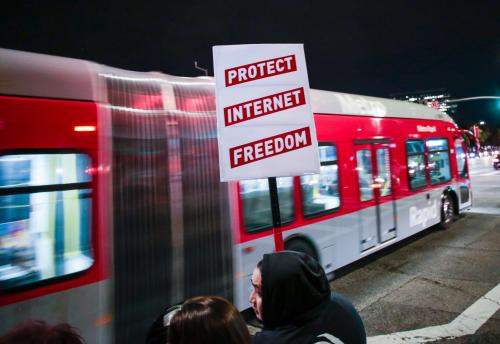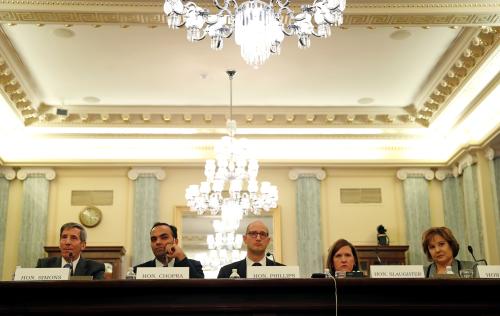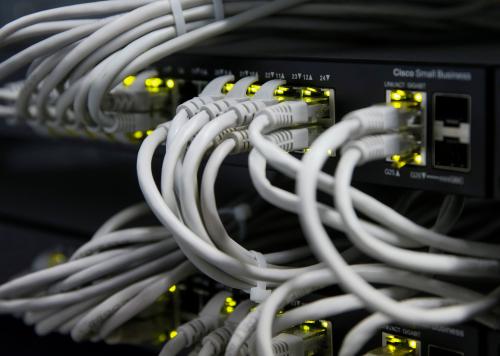The Trump Federal Communications Commission (FCC) has determined, amazingly but not surprisingly, to rush through its transfer of authority over internet service providers to the Federal Trade Commission (FTC)—even before knowing if that agency possesses the authority to handle such matters.
You can’t make this stuff up, folks!
The back story looks like this: when the FTC found AT&T Mobility guilty of unfair and deceptive advertising practices in 2014, the company appealed the decision in the Ninth Circuit Court of Appeals. AT&T’s argument to the court was that the FTC had no jurisdiction over the company because they advertised a common carrier service subject to the sole jurisdiction of the FCC. The three-judge panel hearing the case agreed with AT&T, ruling that the FTC had no jurisdiction over any activity of a company that is also engaged in common carrier activities.
AT&T’s court victory over the FTC soon became a liability. After the Trump FCC issued their notice of intent to cede authority over internet service providers to the FTC, they apparently noticed that AT&T’s victory undermined that position. After it had heard oral arguments in an en banc appeal to the entire circuit, the FCC told the entire court in an October 20 filing that if they affirm the earlier three-judge panel decision, they would create a “regulatory gap.”
I should say so! Even though the Ninth Circuit has decided to rehear the case, doubts remain over the authority of the FTC—authority on which the FCC’s decision to vacate its regulatory responsibility rests. It could come to pass that the Trump FCC’s proposed elimination of the existing Open Internet Rule would exempt AT&T, Comcast, Verizon and others from both FCC oversight and FTC oversight.
A coalition of 40 consumer groups and the City of New York wrote the FCC Chairman earlier this week to suggest a simple solution. Before walking away from all responsibility on the claim that FTC can fill the void, would it not make sense to make sure the FTC had jurisdiction?
The FCC’s response was to call the suggestion “desperate.” In a statement, the agency said that waiting to find out exactly what the FTC’s authority might be before the FCC turns everything over to that agency was “evidence” the proponents of an open internet were “becoming more desperate by the day in their effort to defeat Chairman Pai’s plan.”
I remember the days when Chairman Pai was a commissioner who claimed to be a champion of prudence and process. Back then, of course, he was in the minority. Now that there is a Republican majority on the commission, supported by a Republican Congress. Process and prudence, however, have given away to ideology. It is not irrelevant whether the rush to kill the Open Internet Rules might throw the most important network of the 21st century into a regulatory Neverland. The FCC should at least wait and see what the Ninth Circuit says about this matter.
The abrogation of authority by the expert agency responsible for the nation’s networks is shameful as it stands, but the fact that it relies on the non-existent (or at least undecided) authority of the FTC is an abomination.
For those who love irony, the fact that AT&T asserted the FTC had no jurisdiction over them before the election of Donald Trump is particularly rich. Hoisted on their own petard, AT&T—the champion of pushing the FCC to disavow responsibility for internet activities—is now realizing that their short-term legal strategy against the FTC in one case could defeat their long-term strategy to make their own rules for the internet.
Where’s the fire? Why the rush to judgment on incomplete facts? The FCC should at least wait and see whether the legal theory on which they base the repeal of the Open Internet Order is true.
AT&T is a donor to the Brookings Institution. The findings, interpretations, and conclusions posted in this piece are solely those of the author and not influenced by any donation.







Commentary
Where’s the fire? With unclear legal authority, Trump FCC rushes to hand responsibility over internet service to FTC
December 8, 2017